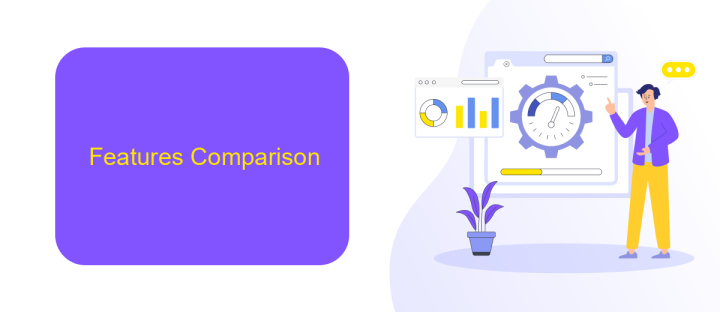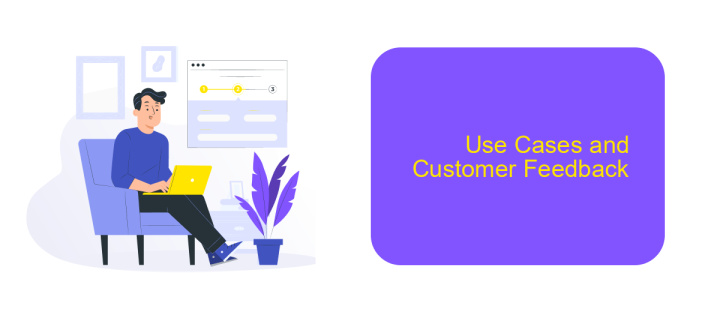Appian Vs MuleSoft
In today's rapidly evolving digital landscape, businesses are increasingly relying on advanced integration and automation platforms to streamline operations and drive innovation. Appian and MuleSoft are two leading contenders in this space, each offering unique capabilities and benefits. This article delves into a comparative analysis of Appian and MuleSoft, exploring their features, strengths, and ideal use cases to help organizations make informed decisions.
Introduction
In today's rapidly evolving digital landscape, businesses are increasingly relying on advanced integration platforms to streamline their processes and enhance operational efficiency. Two prominent players in this domain are Appian and MuleSoft. Both platforms offer robust solutions for integrating various applications and data sources, but they cater to different needs and use cases.
- Appian: Known for its low-code development capabilities, Appian enables organizations to build custom applications quickly and efficiently.
- MuleSoft: Renowned for its comprehensive API management and integration capabilities, MuleSoft facilitates seamless connectivity across diverse systems.
Choosing the right platform depends on your specific requirements, such as ease of use, scalability, and the complexity of integrations needed. Additionally, services like ApiX-Drive can complement these platforms by providing automated integration solutions that simplify the process of connecting various applications and services, further enhancing productivity and reducing manual efforts. Understanding the strengths and limitations of both Appian and MuleSoft will help you make an informed decision tailored to your business needs.
Features Comparison

Appian and MuleSoft offer distinct features tailored for different integration needs. Appian excels in low-code automation, enabling rapid application development with minimal coding. It provides a user-friendly interface and robust process management capabilities, making it ideal for business users and developers alike. MuleSoft, on the other hand, specializes in API-led connectivity, offering a comprehensive platform for designing, building, and managing APIs. Its strength lies in its ability to connect various systems and applications, providing seamless data integration across the enterprise.
When it comes to integration settings, both platforms offer unique advantages. Appian integrates effortlessly with various third-party services, including ApiX-Drive, which simplifies the process of connecting multiple applications without extensive coding. MuleSoft’s Anypoint Platform provides extensive tools for API management, including design, testing, and monitoring. It supports a wide range of protocols and connectors, ensuring flexible and scalable integration solutions. Ultimately, the choice between Appian and MuleSoft depends on the specific integration requirements and the level of customization needed for your business processes.
Pricing and Support

When it comes to pricing, Appian offers a flexible subscription model based on the number of users and the complexity of the applications. MuleSoft, on the other hand, follows a subscription-based pricing model that scales with the number of applications and APIs being managed. Both platforms offer custom pricing for enterprise-level solutions, ensuring that businesses of all sizes can find a suitable plan.
- Appian: Flexible subscription model based on user count and application complexity.
- MuleSoft: Subscription-based pricing that scales with applications and APIs.
- Custom pricing available for enterprise solutions on both platforms.
Support services are critical for any integration platform. Appian provides comprehensive support options, including 24/7 customer service, online resources, and dedicated account managers. MuleSoft offers similar support with a focus on API management, including extensive documentation and community forums. For businesses looking to streamline their integration processes, services like ApiX-Drive can be invaluable, offering automated workflows and seamless integration solutions across various platforms.
Use Cases and Customer Feedback

Appian and MuleSoft are widely used for different purposes, with Appian focusing on low-code application development and MuleSoft on API-led connectivity. Businesses leverage Appian for rapid application development, workflow automation, and case management. MuleSoft, on the other hand, excels in integrating various systems, services, and APIs, making it ideal for complex enterprise environments.
Customer feedback highlights the strengths and weaknesses of both platforms. Appian users appreciate its intuitive interface and speed in deploying applications. However, some users find its customization options limited. MuleSoft is praised for its robust integration capabilities and extensive connector library, though it can be complex to implement and manage.
- Appian: Rapid application development, workflow automation, case management.
- MuleSoft: API-led connectivity, system integration, extensive connector library.
For businesses looking to streamline their integration processes, tools like ApiX-Drive offer valuable support. ApiX-Drive simplifies the integration of various applications and services, making it easier for companies to connect their systems without deep technical expertise. This can be particularly beneficial for organizations using either Appian or MuleSoft, as it enhances their overall efficiency and effectiveness.
Conclusion
In conclusion, both Appian and MuleSoft offer robust solutions for enterprise integration and automation, each with its unique strengths. Appian excels in providing a low-code platform that simplifies the development process, making it accessible for users with varying technical skills. This can significantly accelerate project timelines and reduce development costs. On the other hand, MuleSoft stands out with its powerful API-led connectivity approach, allowing for seamless integration across a wide range of systems and applications, which is critical for complex IT environments.
When considering integration services, tools like ApiX-Drive can further enhance the capabilities of both platforms. ApiX-Drive offers a straightforward way to automate and manage integrations without extensive coding, making it an excellent complement to both Appian's low-code environment and MuleSoft's API-driven framework. Ultimately, the choice between Appian and MuleSoft should be guided by the specific needs and technical requirements of your organization, ensuring that the selected platform aligns with your strategic goals and operational demands.
FAQ
What are the primary differences between Appian and MuleSoft?
Which platform is better for enterprise-level integration projects?
Can Appian and MuleSoft be used together?
How do these platforms handle security?
Are there services available to help implement and integrate these platforms?
Apix-Drive is a simple and efficient system connector that will help you automate routine tasks and optimize business processes. You can save time and money, direct these resources to more important purposes. Test ApiX-Drive and make sure that this tool will relieve your employees and after 5 minutes of settings your business will start working faster.

